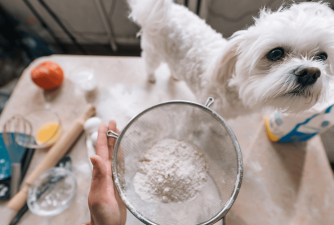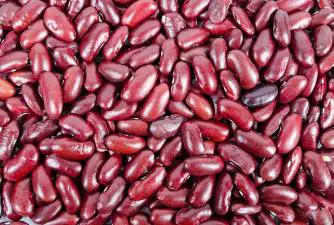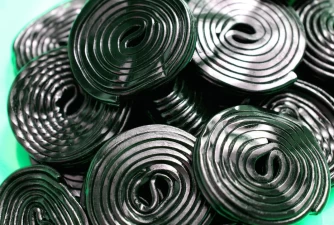Which of These Nuts are Safe for Dogs
23.04.2021.
There are a dozen different types of nuts humans love to eat. Nuts are an enjoyable snack that is packed with healthy nutrients and fatty acids. However, just because something is good for us doesn’t mean it is suitable for our dogs. As dog owners, we love sharing snacks with our dogs, and since nuts are one of our favorite snacks, we wondered, “Can dogs eat nuts?” We weren’t sure what nuts are safe for dogs to eat or if dogs could eat any. We decided to look a bit deeper into this issue. Here is what we found out.
Walnuts
Generally speaking, dogs can eat walnuts, but it is not recommended. Grocery-store-bought walnuts might be safe for dogs, but those you pick outside should not be given to dogs under any circumstances. There is a massive difference between these two differently-sourced walnuts, and you should generally avoid giving them to dogs.

Why are they not safe for dogs?
The main reason why walnuts picked in the wild are not safe for dogs is - they are prone to a specific type of mold that is toxic to canines. While cracked, high-quality, store-bought walnuts don’t contain this type of mold (usually), walnuts picked off the floor might have developed it. This mold or fungi walnuts can develop, produce mycotoxins, which are extremely toxic to dogs.
Another thing you should know as a dog owner is, “Can dogs eat raisins?”
Pistachios
The shortest possible answer to the question, “Can dogs eat pistachios?” would be - yes. However, this type of nut is not recommended for dogs. For all the pistachio lovers like us, the good news is our dogs will not get poisoned if they eat pistachio or two that fell on the floor. Although, generally, you should avoid giving pistachio to your dog.

Why is pistachio bad for dogs?
The main reason pistachio is bad for dogs is that it has a high fat content. Dogs usually benefit from things that are high in protein and low on carbs and fats. Even a few pistachios can lead to stomach issues and pancreatitis-related problems. If the dog eats pistachios continuously, they are more likely to become overweight, and in time, even obese.
Pecans
Pecans are another type of nuts Americans are crazy about. You can find delicious pecans in pies, muffins, cakes, and all sorts of tasty treats we love to consume. However, sharing some with your dog is not the best nor safest idea.

Why are pecans not safe for dogs?
Like walnuts and pistachios, pecans are high in saturated fats, which increases the dog’s chance of developing heart diseases and high cholesterol levels. These high-fat legumes can lead to all sorts of health issues, from pancreatitis, gastrointestinal distress, and lead to obesity. Like that wasn’t enough, pecans contain a toxin called juglone that is very toxic to dogs and horses. They are also prone to developing the same type of mold walnuts can develop. All of these reasons should be more than enough not to give your dog any pecans.
Cashew
Unlike macadamia nuts, cashews are actually safe for dogs to eat under certain conditions. Like other nuts, cashews are high in fats and protein, so when you give your dogs cashews, make sure how many and how often you give these nuts to them. They might be safe for dogs to eat, but that doesn’t mean you should overfeed your dog on treats that are high in fats.

How to safely give cashews to dogs?
Like with all human food, there are some general guidelines you should follow when giving your dog cashews. Overfeeding your dog on cashews can lead to pancreatitis, which is a life-threatening emergency. If you are adamant about sharing a few with your dog, keep in mind to treat cashews as a rare treat. You can eat them whenever, but your dog should not eat cashews more than a few times a week. Keep the number of cashews low, and control the intake your dog has. You don’t want to end up endangering your dog because you shared too many cashews with them.
You can read more about giving cashews to your dog here - Can dogs eat cashews?
Peanuts
Peanuts are actually healthy and safe for dogs to eat. However, there are different types of peanuts available, and you don’t want to end up giving your dog the wrong kind. This is also true for giving your dog another popular human treat - peanut butter. The salted peanuts should not be given to dogs. Fresh or dry roasted peanuts can be shared with dogs, but only in moderate amounts.

How to safely feed your dog peanuts?
You can probably guess that the key thing to all human foods your dog eats in moderation. You should never overfeed your dog on foods that are not generally on their menu, and peanuts are certainly one of those foods. You can give a few fresh or dry roasted peanuts to your dog as an occasional snack. Too much of them will lead to pancreatitis-related issues, obesity, and the usual health concerns connected to giving your dog different types of nuts.
Want to read more about peanuts and dogs? Check out this article - How to safely feed peanuts to your dog?
In conclusion
Before you give your dog any kind of human food, make sure you checked whether that food is safe for dogs. When it comes to different types of nuts dogs can eat, there is a chance of an allergic reaction, so make sure you keep an eye on your dog’s reaction to nuts. In general, dogs won’t benefit too much from eating nuts, but they seem to love the taste. If you can, it would be best to avoid giving nuts to your dog.
World Dog Finder team







Share